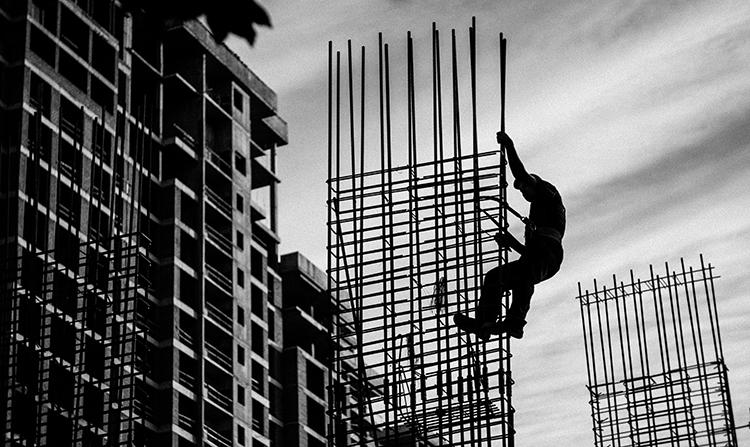Czechia: Construction industry is in crisis, investors do not find it profitable to invest
The construction industry is in a deep crisis and the way out of it is a significant reduction in the prices of construction supplies. Otherwise, it is not worth investing in. However, the work of builders is also complicated by regulation and legislation. This follows from the analysis of the construction and housing market of the residential developer Central Group and the consulting company KPMG, which its representatives presented to journalists today. According to the analysis, the new construction law, which is expected to come into force this summer, and the associated digitalization bring uncertainty and fear of a total collapse of building permits.
Construction output showed a decline in almost all of the second half of 2023 and this trend has continued this year, according to the analysis. Building material prices are holding at an average 40 percent higher than at the start of 2021, and bricks, concrete and steel, for example, have started to rise in price again. The number of building permits in the second half of 2023 fell nine percent year-over-year. Residential buildings saw the biggest drop of 15 per cent. According to KPMG Partner Pavel Kliment, the performance of construction output is driven by engineering, i.e. transport and energy construction.
According to the analysis, the problem complicating the construction industry in the Czech Republic is also over-regulation and considerations about the regulation of the housing market. According to Dusan Kunovsky, managing director of Central Group, these steps will not lead to market recovery and many of them are unnecessarily strict. Shortening permitting processes and simplifying legislation is also one of the recommendations of the National Economic Council of the Government (NERV). However, some of the considerations of the Ministry of Regional Development (MMR), which favour tenants over landlords, could lead to owners preferring not to rent out their apartments and leave them vacant, according to Kunovský.
The digitisation of the building procedure, which is part of the new Building Act, should help speed up the process. It should come into force on 1 July this year. However, Kunovský said it is incomprehensible that the implementing regulations, which are key to real digitisation, are not known, as well as how prepared the state administration is. According to Leona Gergelová Šteigrová, senior director of the public investment, construction and social inclusion section at the Ministry of Economy and Trade, the concrete form of the first module of the digitised construction procedure will be presented in April in Brno. At the same time, she said, the state has managed to train 4,000 officials in the system, so the first version of part of the system has been available to the office since 1 March. In its simplicity, she said, it should resemble internet banking.
According to Kunovský, state programmes for housing construction are also ineffective, which was confirmed by the National Audit Office in January this year. According to it, the state spends billions of crowns on housing support, but the effect on the housing market is only marginal. Investors are also discouraged from building by the unbalanced financial participation of investors in the construction and the fact that Prague lacks a citywide concept for building and financing school construction.
According to an Ipsos survey of 1,000 respondents and presented at the conference today, 45 percent of respondents perceive the biggest obstacle to building development to be lengthy and complicated building permitting. According to 30 per cent, there is a lack of an overall government concept to support construction.
Source: Ipsos and CTK









